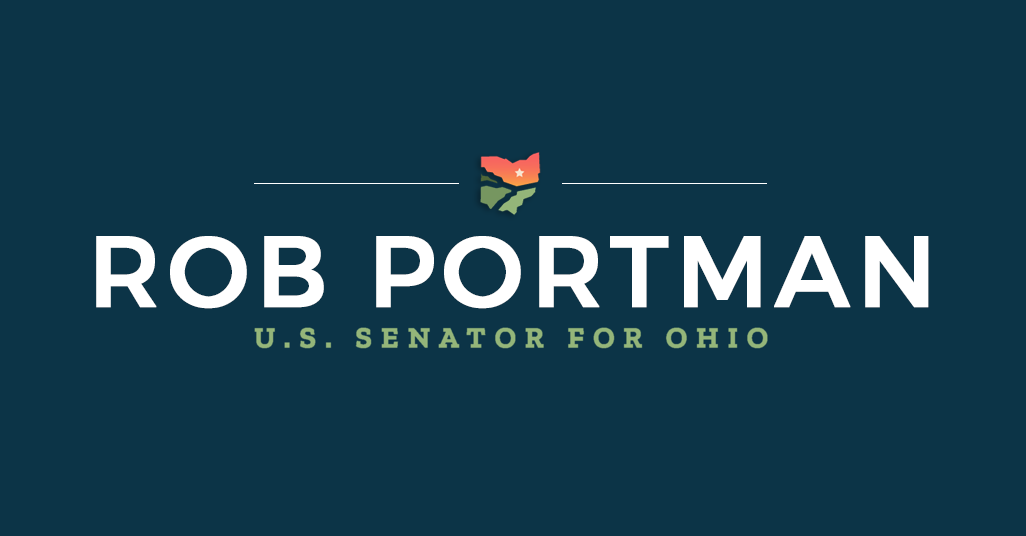Source: United States Senator for Ohio Rob Portman
October 7, 2021 | Portman Difference
In an interview this morning with CNBC’s Squawk Box, Senator Portman discussed the negative economic impact of Democrats’ $3.5 tax and spending spree. Portman noted that, despite President Biden’s promises, middle class families making under $400,000 a year will see their taxes increase if Democrats succeed in enacting their massive spending bill.
On the debt limit, Portman explained how Democrats must vote to increase the debt limit because of their massive spending bills. In March, Democrats forced through a $1.9 trillion package without any Republican support. And now, Democrats are gearing up to pass a $3.5 trillion bill – the largest in American history – without a single Republican vote.
A transcript of the interview can be found below and you can also watch the interview here.
PORTMAN ON DEMOCRATS’ PROPOSED TAX HIKES:
“But they do get it, that we are spending our way into a financial crisis, and that there’s a fundamental philosophical difference here in terms of the taxes, because what Democrats are saying is they want to spend a lot more and they also want to tax the whole lot more. Now their taxes actually don’t add up to the spending. So there actually will be debt on top of that. But the spending is something that I think people are attuned to. But I think the taxes are really problematic for people.
“When you look at the analysis from the Joint Committee on Taxation, this does fall on middle-class Americans, there’s no question about it. So that analysis is out there for people to see. If you make less than $400,000 a year and you’re being told by President Biden you’re not going to be touched by this reconciliation bill, the tax bill, it’s just not true. And again, go to the Joint Committee on Taxation, a nonpartisan group up here in Congress who has now analyzed their legislation and said, ‘This is going to fall on you, too.’”
PORTMAN ON DEBT LIMIT:
“Well, we have never defaulted, and we shouldn’t default, and we won’t default. The question is, how do you do it? And the extension of the debt limit has always been an opportunity to talk about the underlying problem, which is that we’re spending too much, a lot more than we’re taking in, and it’s resulted in, frankly, some reforms. Remember Sequester? Even before that, Gramm-Rudman. More recently, the caps that were put in place on spending. So it’s designed to be an opportunity to look at the underlying problem.
“What Republicans are saying is very simple. Of course, we’re going to extend the debt limit, but we’ve got to be sure that we know how this happened and it happened almost entirely – the increase in the debt limit that needs to be made, other than what we normally have to be done – for two reasons. One is the roughly $2 trillion reconciliation bill, meaning totally partisan, no Republican support, big spending bill that happened in March of this year. And the second is the anticipation the Democrats have that they want to do it again. And this time something between $3.5 and probably $6 trillion if you look at the real numbers as to what its impact is going to be on the debt.
“So Republicans have said very simply, over the last 24 hours, ‘We’re not going to get in your way, but you’ve got to extend your debt limit because the increase in that debt limit is being caused by these, again, partisan reconciliation packages.’ Republicans don’t want to increase the spending in these areas. So I think it is an appropriate debate to have.”
…
“Well, you’re right. You’re absolutely right. Yesterday there was a threat, and I think it was real, that Democrats were going to, in effect, blow up the filibuster and therefore, again, have, as you say, really no debt limit because they don’t want to have the conversation. And you’re right. We don’t communicate as much between the parties as we should. But I don’t think that’s the fundamental problem. I think the fundamental problem is just a difference in philosophy as to how much we should be spending as a nation. We’re now approaching $30 trillion in our debt. Again, if you look at this most recent reconciliation package the Democrats are talking about pushing, it not only increases spending a lot, but it also increases taxes to the point that it really would hurt our economy at a time when we’re trying to get out of this pandemic and get back on track. So that’s the difference. It’s a philosophical difference as to taxes and spending.”
…
“I think the answer to this is pretty clear, that Democrats have the ability to provide the votes to be able to get this done. They have a mechanism to do it. In effect Becky, if you think about it, there already is a carve out for the filibuster for debt limit. It’s called reconciliation. You can do it under reconciliation because reconciliation deals with the budget, either taxes or spending, so the debt limit can be done under reconciliation. Republicans have basically said, ‘We’re not going to get in the way. We’re going to waive a lot of our rights to the time that we would normally have to debate issues or notices to take it to the Budget Committee. So go ahead and do it. We’re giving you the ability to be able to do it. You can do it with 50 votes. You can do it under reconciliation, it’s an existing carve out, in effect, not just for debt limit, but also for other economic issues.’ And the question I have is why don’t they just do it?”
###
